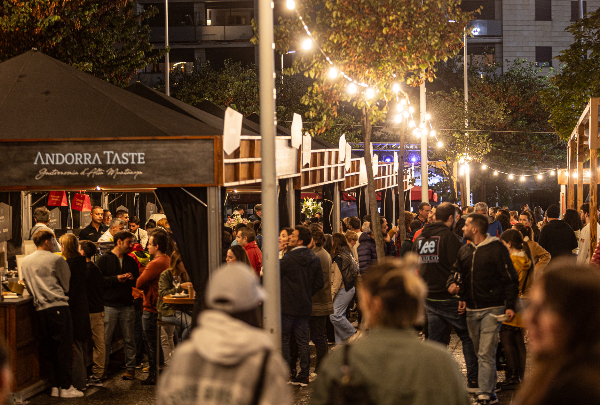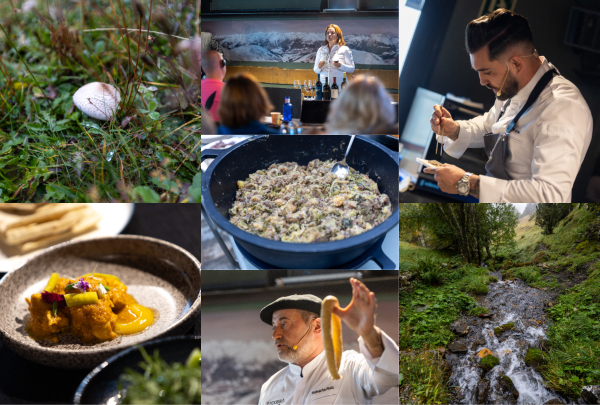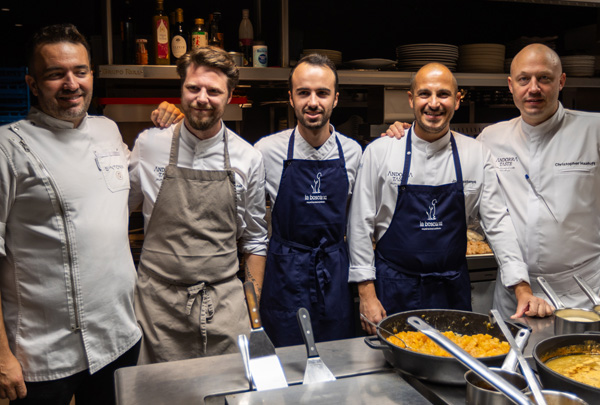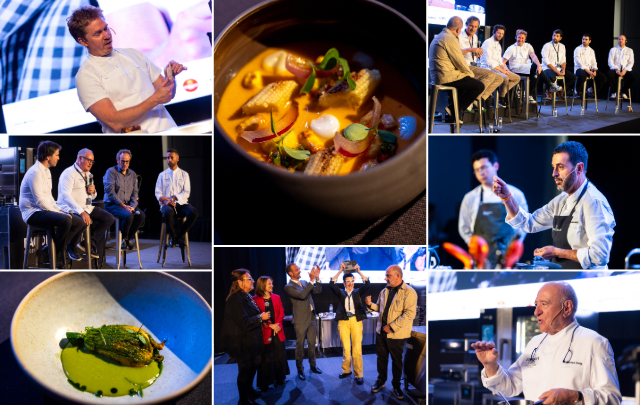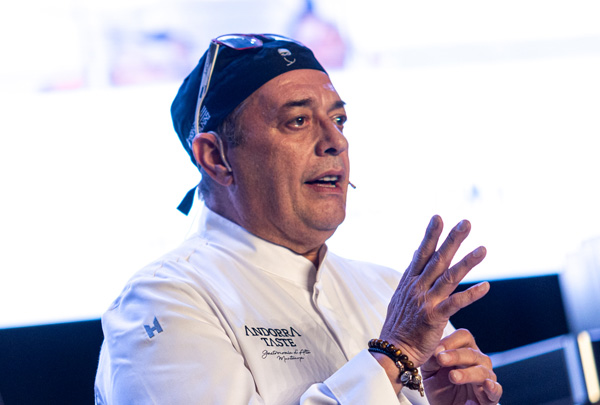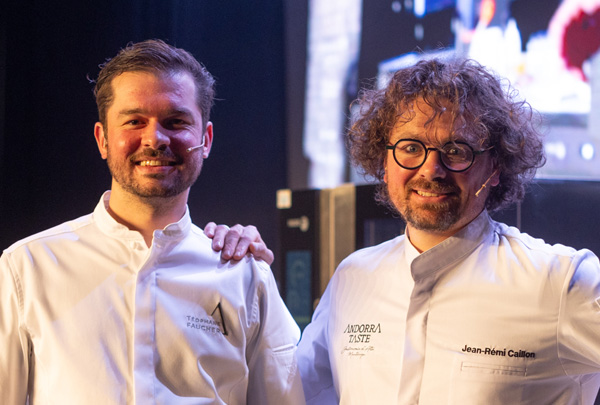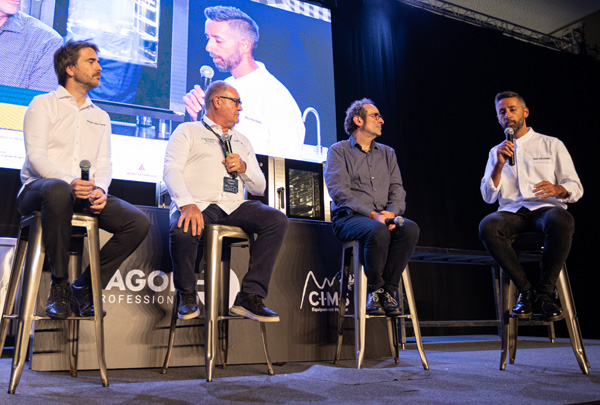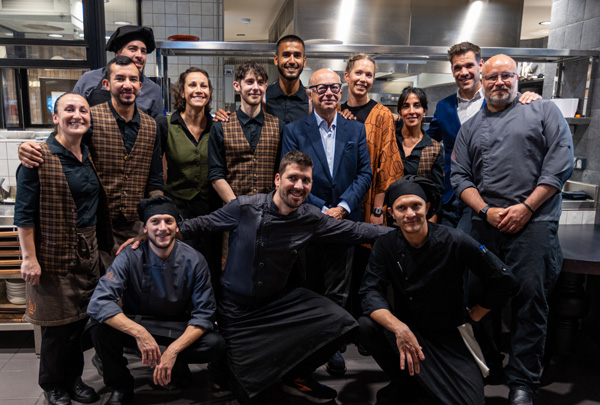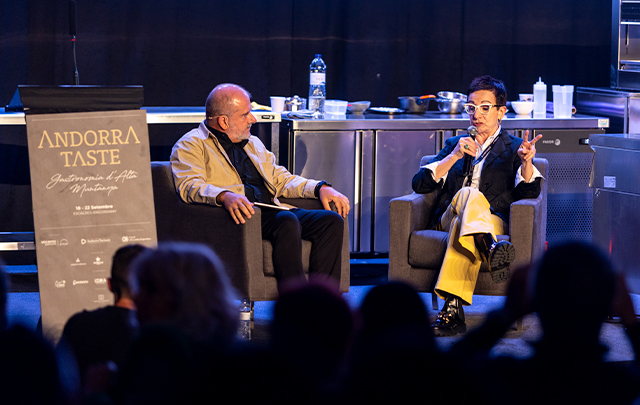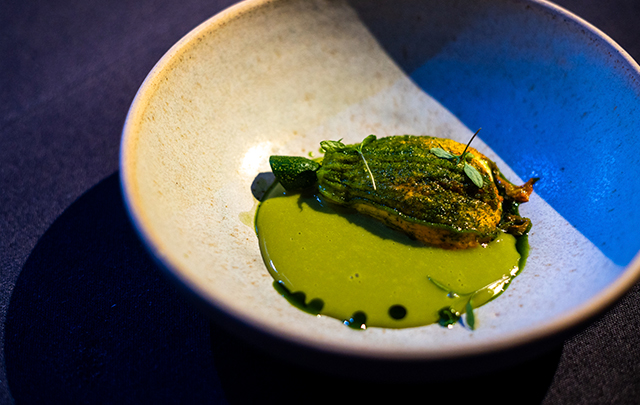News
And the manifesto worked
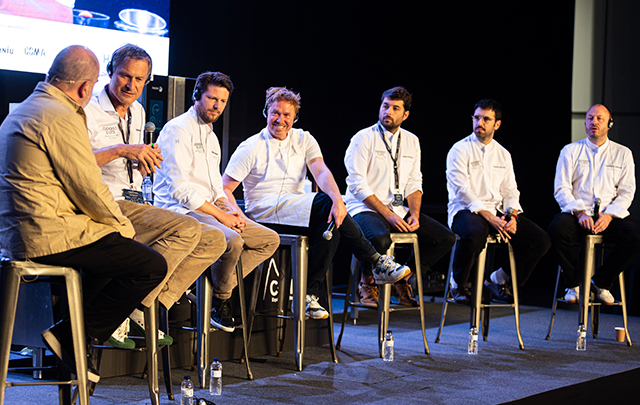
Twenty years after its inception, the instigator of nouvelle nouvelle Nordic cuisine looks back at the before and after of a culinary movement that changed his region - and the world. He was joined at the round table by chefs from Denmark, Norway, Sweden and Finland.
Moderated by Vocento Gastronomy CEO Benjamín Lana, today's debate was one of the highlights of the congress. As this year's guest countries, there is no doubt that the Nordic countries have set the gastronomic tone for the last 20 years, catapulted by the success of Noma***, always on the list of the best restaurants in the world. But how did such a revolution begin? According to entrepreneur Claus Meyer, the creator and alma mater, ‘we tried to adapt the concept of terrorir that existed in Mediterranean culture to our culture, but at the same time to invent our own way of doing things, to represent our particular culture on the plate, to simplify the processes and to make the chef the protagonist of nature’.
And since the best company always comes first, Meyer looked for the best partner he could have found in the very young René Redzepi, ‘who was the perfect age, had impeccable training and a very open mind. He has now become a dominator of empires, and I think it was a very wise choice,’ he acknowledged. The next step was to draw up an ambitious but feasible manifesto and present it to the relevant authorities and to every agent likely to be involved in change. And it turned out that, to do so, he organised a symposium attended by Andoni Luis Aduriz, to narrate in first person the creation of the new Basque cuisine. ‘Before creating the manifesto, I was co-author of a book on Spanish cuisine and I had to cover Andalusia and the Basque Country. I interviewed Berasategui, Arzak, Aduriz and Subijana; I was fascinated by the nouvelle Basque cuisine, and I was surprised that what I was enjoying was an evolution of 25 years of work. So I asked Aduriz to tell me about his experience’, argues Meyer.
Sustainability and future
And although we can all look at the results, it seems that the manifesto has worked, turning Scandinavian haute cuisine into a great world reference. ‘The movement has been similar in all the Nordic countries. In Sweden, we have learned from Denmark, which was doing it before, and we have adapted it to our style,’ says chef Filip Gemzell, who runs the hugely successful restaurant ÄNG** (Tvååker). In fact, he admits that he is benefiting from the noticeable increase in foodie tourism in the region, when ‘two years ago, 80% of our clientele was local, not just national. Now it is quite balanced, especially in the last year, I guess dragged by Denmark’. A phenomenon that worries Søren Selin, chef at the AOC** restaurant in Copenhagen, because ‘25 years ago no one from abroad came to eat in Denmark; now we are an attraction for the gourmet tourist. But this has put us in a somewhat vulnerable situation, because we can no longer support ourselves with locals alone. In January, when tourism drops, there are too many of us to share the cake,’ he admitted.
From Norway, the chef from Lysverket* (Bergen) Christopher Haatuf explained to us the meaning of the term Neofiordic, which he uses to define a faction of Nordic cuisine, ‘a concept that began with an ironic comment I made a few years ago about the new Nordic cuisine, and which I was forced to intellectualise due to the enormous interest it aroused’, he acknowledged, arguing that it refers to a different form of cuisine to that of the rest of Scandinavia, such as that of western Norway, “where we have a very inhospitable territory, rich in fish and seafood, but very poor in vegetables”. Sensitised by this, and also by the environmental awareness of Nordic society, since the pandemic he has been involved in an urban agriculture project, ‘encouraging building communities to plant gardens on their rooftops and charge for it. It has a holistic and sustainable approach and contributes to our biodiversity.
Also at the table were the Spaniard Albert Franch and the Portuguese Carlos Ferreira, both chefs at the Nolla* restaurant in the Finnish capital, a country where they arrived "at the best time, because there was a growing passion among many chefs to change things. Because you have to admit that the food in Finland was terrible," Carlos revealed. An arrival that took place 12 years ago, and which did not come as too much of a shock to Albert either, since "the culture of Finnish households in terms of using local produce is not too different from what I learned at home", although he admits that "it is not so widespread in restaurants". That's why Nola is not really a Nordic restaurant, because we use Mediterranean style and techniques'. When asked how they are adapting to the demand for sustainability, Albert was categorical. In the north of the planet there are not as many social or individual problems, and that is why society spends more time and effort on solving global problems such as climate change,' he admitted.


